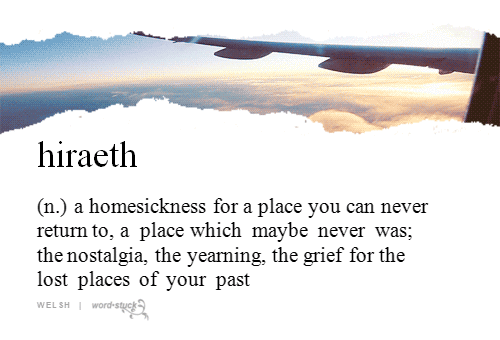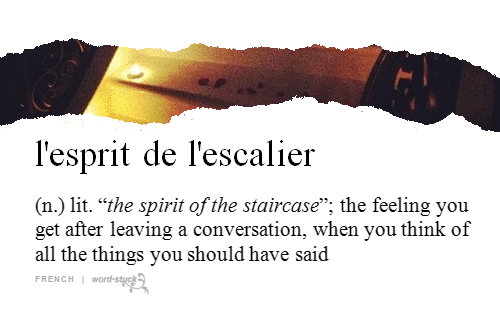
At this very moment, your heart may be fluttering with anticipation, your stomach might be knotted with nerves, you might have a sudden urge to kiss the person to your right, perhaps you are antsy with iktsuarpok.
Descartes claimed that there are only six basic, universal emotions, which he called the “primitive passions”: wonder, love, hatred, desire, joy, and sadness. While I agree that all human beings, no matter their language or culture background, certainly experience these six emotions, should we constrain ourselves to vague generalities, when there is an infinite number of sensory opportunities for us to experience this world? Should foreign languages stop us from exploring the inner workings of our brain?


Words are very telling about cultures; they help define what’s important to a culture’s people. In the same way that the Inuits have over 50 words to describe snow in all its varieties, cultures put into words the emotions and feelings that are the most relevant to their society. Words are efficient, yet words also are practical and purposeful vessels of emotion. We may feel “cozy and warm from being inside with friends on a cold day,” but because we don’t have a word that sums up that particular feeling, we would be more likely to let the feeling go unsaid. The Dutch on the other hand, whose vocabulary includes the word “gezelligheid,” can express in just four syllables their warm-hearted comfort.
Words are fascinating. Especially foreign words. Even when you aren’t sure how to pronounce them, their specific meanings that define a feeling you’ve had before somehow brings the world closer together. We become one culture of feeling beings. We bond over our likenesses rather than the differences between us.
True, you might not ever use one of these words while hanging with your friends or in a school paper. In fact, it might be wholly pretentious if you just said, “As Mr. Rochester stepped out of the shadows, Jane Eyre was overcome with a bout of basorexia and nearly succumbed to it.” But, there is something very comforting knowing that the word exists. That someone on the other side of the globe has expressed a feeling for you. A secret between you and the word.
It’s no coincidence that words and emotional expressions are the two most effective ways that humans communicate with each other. Of course, then, we find people striving to connect the two together. Books such as Tiffany Watts Smith’s “The Book of Human Emotions,” Ella Frances Sanders’ “Lost in Translation,” and Tumblr site “Word-stuck” are increasing the powerful beauty, history and art of this compounding. We are inventing a language of feeling, a language that is ever growing, a language not bound by country borders or regional differences, but a language born out of humans just being human.


